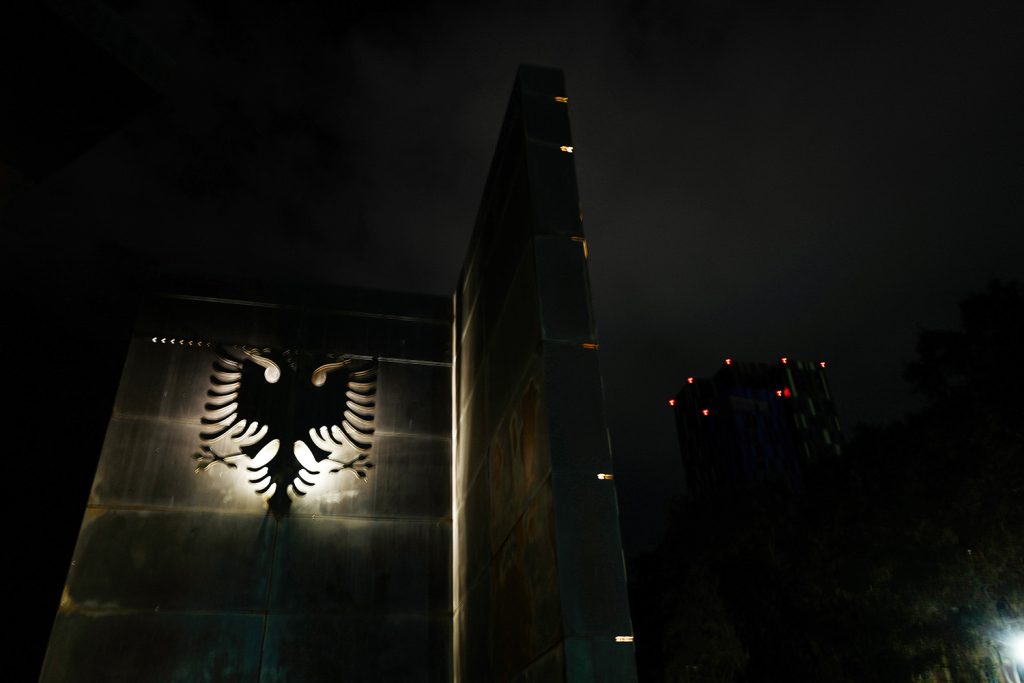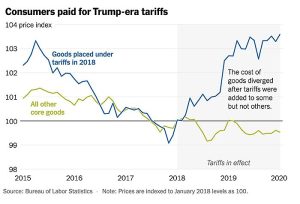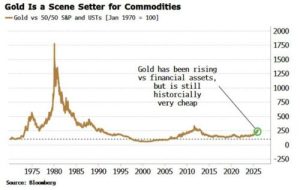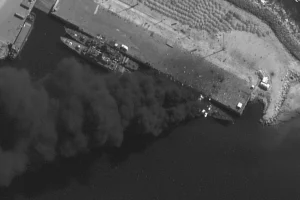Albania’s Economic Mirage: A Looming Threat to Stability and Security

TIRANA, Albania, 20th September 2022: Monument in the center of the Albanian capital, Tirana. Ayman Oghanna for Foreign Policy.
By Nikola Kedhi
Thursday, 02 October 2025 10:07 AM EDT
Albania’s economic model, scrutinized in a recent study by the Albanian Conservative Institute, reveals a precarious reliance on illicit financial flows that jeopardizes its democracy, regional stability, and transatlantic alliances. Despite GDP reaching €24 billion in 2024 with average growth of 4%, critical sectors like industry and agriculture face decline, while construction and services—areas rife with money laundering—dominate the economy.
The OECD’s EU Convergence Report ranks Albania last in business climate, exacerbating concerns about its economic fragility. Combined data from journalistic sources and global authorities estimate annual illicit inflows at €4 billion, or 17% of GDP. The shadow economy accounts for 30–35% of GDP, the highest in Europe, with Bank of Albania figures showing only 22% of construction projects financed by bank credit. Cash in circulation stands at €4.5 billion, double the EU average, while unexplained “net errors” in the Balance of Payments reach €0.8 billion.
Real estate foreign direct investment (FDI) has surged to 29% of inflows, yet Albania lags in FDI growth and infrastructure rankings among Western Balkan nations. Trade deficits persist, with goods trade deficit at -25.3% of GDP in 2025, exports declining for three consecutive years, and agriculture—employing 30% of the workforce—contracting since 2021. Tourism, a key economic pillar, suffered its worst year recently, while the lek’s 30% appreciation against the euro since 2015 hints at unreported capital inflows.
Demographic collapse compounds these challenges. Since 2014, 40% of Albania’s population—1.1 million people—has emigrated. Birth rates fell 6.5% in the first half of 2025, with deaths consistently outpacing births since 2021. The UN ranks Albania first globally for declining natality. To address labor shortages, the government has imported workers from Asia and Africa, many seeking transit to the EU and UK.
Social indicators paint a grim picture: near-20% poverty, 42% social exclusion, and an average monthly wage of €838—the lowest in Europe. Tirana’s population density exceeds four times the EU average, with 33–40% apartment vacancy rates and air pollution linked to 100,000 premature deaths since 1990.
The Albanian Conservative Institute’s analysis underscores the risks of continued dependence on illicit flows. Reducing them by 30% would shrink GDP by 0.85% in the first year, while a full cutoff could cut GDP by 2.8% and collapse construction. For NATO allies, Albania’s instability poses a direct threat, given its strategic position across from Italy.
The institute proposes reforms: dismantling illicit flows through stricter enforcement, cutting taxes to boost production, and reducing state capture. A vision of a competitive, export-driven economy anchored in free markets and innovation is presented as the path forward.
Nikola Kedhi, Executive Director of the Albanian Conservative Institute.







